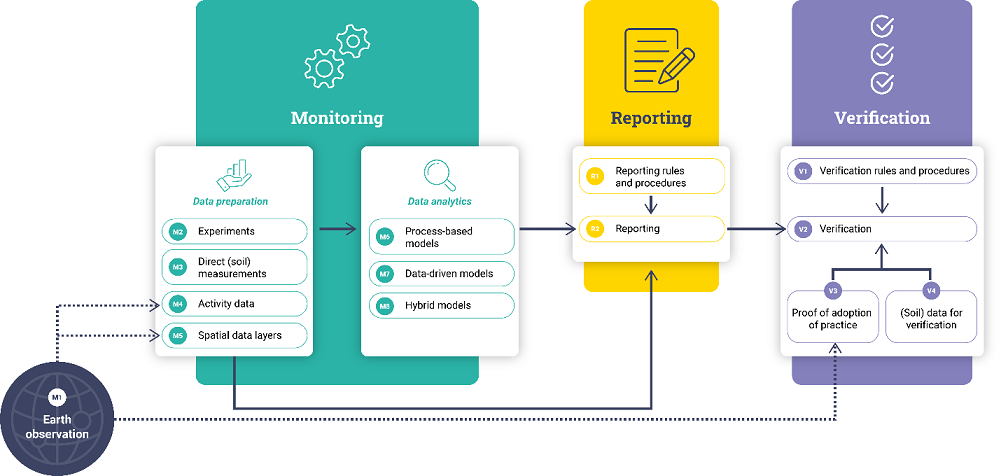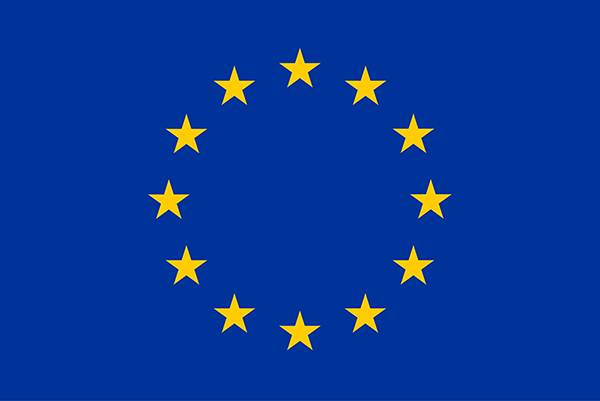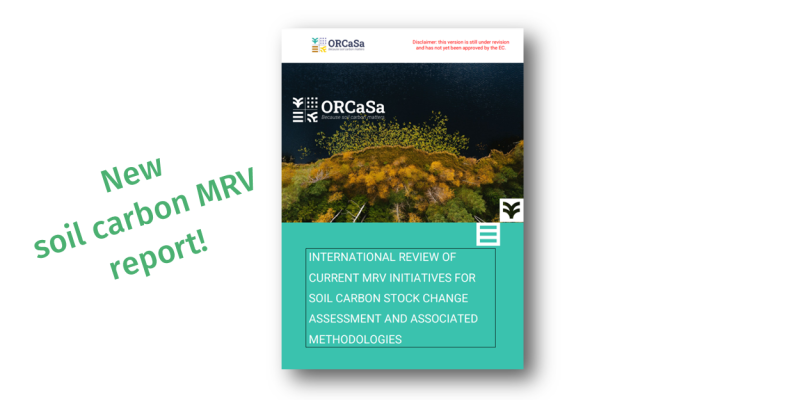International review of MRV initiatives for soil carbon stock change released
Increasing soil carbon stocks is one option in our global toolbox to reach important targets such as the Paris Agreement commitments and EU Green Deal. International coordination of research on conserving and increasing soil carbon is essential. This will help us harness the co-benefits for climate change mitigation and adaptation, soil health and food security. In this context, ISRIC – World Soil Information is part of the European Commission-supported ORCaSA project, led by INRAE (France), to establish an International Research Consortium (IRC) on Soil Carbon with a Strategic Research and Innovation Agenda (SRIA) that will not only consider agricultural soils, but also forests, pastures, wetlands and public spaces so that the chances to capture and store carbon are maximized.
Within this ambitious framework, an international writing team led by ISRIC – World Soil Information in August 2023 completed a review of soil carbon MRV (Monitoring, Reporting and Verification) initiatives at international level with a view to future harmonisation.
“Worldwide, a diverse range of guidelines and approved methodologies for MRV is being used so that results cannot readily be compared, hence the need for a generic and harmonized, scalable MRV framework” explains Niels Batjes, senior soil science expert at ISRIC – World Soil Information and first author of the review.
The review shows that internationally, there is a wide range of application contexts (e.g., Nationally Determined Contributions (NDCs), EU’s Common Agricultural Policy (CAP), voluntary C market, insetting), ecosystems (e.g., croplands, grasslands, forests, wetlands), frameworks, methodologies and guidelines for monitoring, reporting and verification for soil organic carbon (SOC) and greenhouse gases (GHG) changes. Similarly, a wide diversity of tools to assess possible effects of land use/management interventions on SOC stocks and GHG emissions are applied in different parts of the world, by a diverse range of stakeholders.
Citation: Batjes, Niels H., Eric Ceschia, Gerard B.M. Heuvelink, Julien Demenois, Guérric le Maire, Rémi Cardinael, Cristina Arias Navarro, and Fenny van Egmond, 2023. International Review of Current MRV Initiatives for Soil Carbon Stock Change Assessment and Associated Methodologies. ORCaSa Project Deliverable 4.1. ISRIC, INRAE and CIRAD, 122 pp.
Considering this diversity, and the overarching societal and political demand for a consistent, widely applicable and scalable MRV system, a novel framework for a generic MRV methodology was developed and shared in the review publication. The framework itself expands on earlier influential work (i.e., by CIRCASA and Colorado State University with international partners) further detailing the individual ‘building blocks’ of each MRV component. Individual ‘building blocks,’ as comprehensively inventoried and discussed in the review, in-turn may be combined, or (re)used at different stages of the MRV cycle. The review also emphasized the importance of uncertainty assessment throughout the entire MRV chain.

One recommendation stated in the review is to organise stakeholder workshops to jointly refine and possibly extend the list of key characteristics for rating approved MRV methodologies. Additionally, it would be worthwhile to assign weights to each characteristic to evaluate the sensitivity of the results of the multidimensional scaling procedure to various choices. Access the full publication here.
Building on this review, next steps in the ORCASA project are to create a blueprint of an MRV framework for croplands SOC stock changes and to build an integrative and multi-ecosystem MRV framework for SOC stock changes.
The ORCaSA project receives funding from the Horizon Europe research programme under Grant Agreement No. 101059863.


